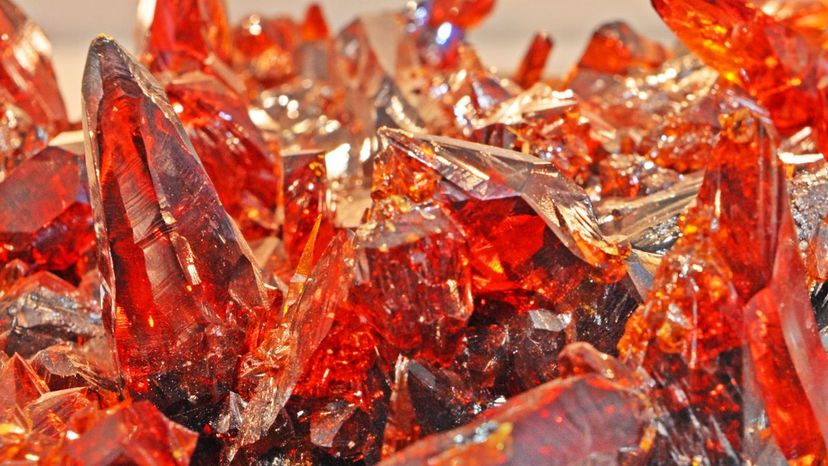
About This Quiz
Gemstones have many names, which include but aren't limited to gems, jewels and precious stones. These rocks are usually mineral crystals that are cut and cleaned and used in many, many ways. Usually, they're used in jewelry such as pendants, rings and crowns. Other uses for these precious and semi-precious stones include astrology and astrological readings, to bring good fortune and for decoration.Â
But there are so many of them, in so many different colors, that it can be difficult to know what you're looking at when it's right in front of you. That's why we're going to test your knowledge of them today. So, we're going to show you a whole bunch of them, and your job is to correctly match each stone with its name. And don't think that every red gemstone is a garnet or all clear ones are diamonds. Not every green stone is an emerald and not all pink ones are rose quartz.Â
This quiz will definitely put your knowledge to the test, so much so that if you pass, we'll be really impressed. Are you ready to show us how many gemstones you can identify?
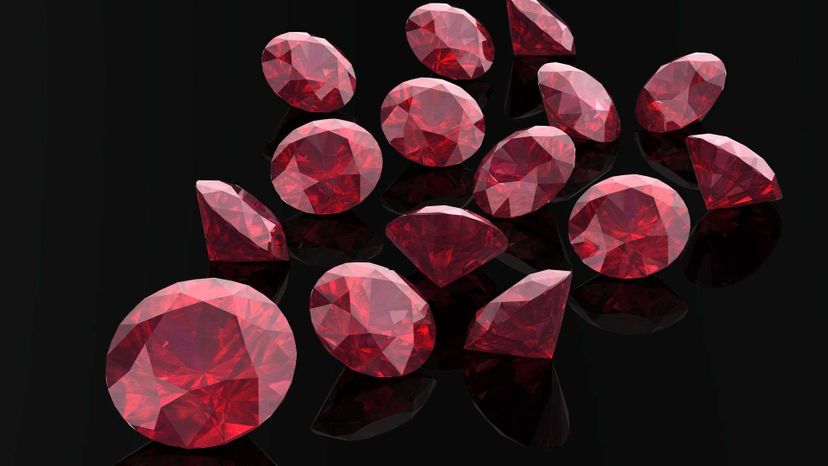
Garnet is the collective name for any member of a group of common silicate minerals which possesses similar physical properties and crystal forms but different chemical compositions. This semi-precious stone may be black, colorless or various shades of green and red.
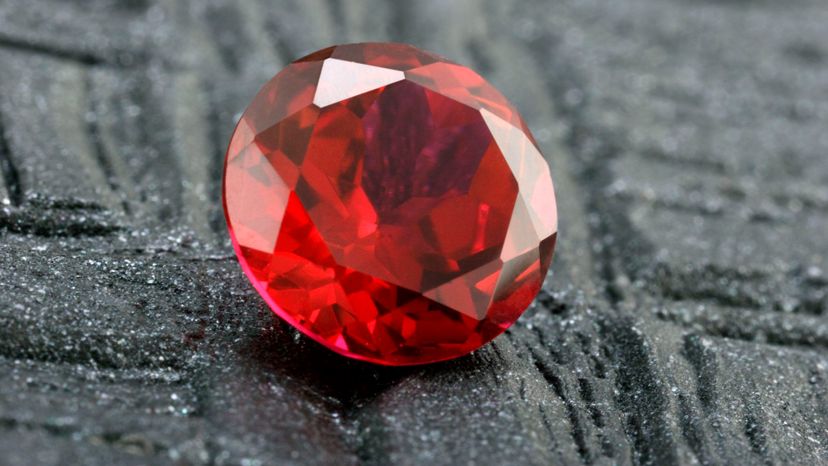
Ruby, the official birthstone of July, is a pink to fiery red precious/cardinal stone and a variant of corundum, the same mineral as sapphire. Ruby is used in crystal healing to stimulate passion, adventure, enthusiasm, courage and confidence.
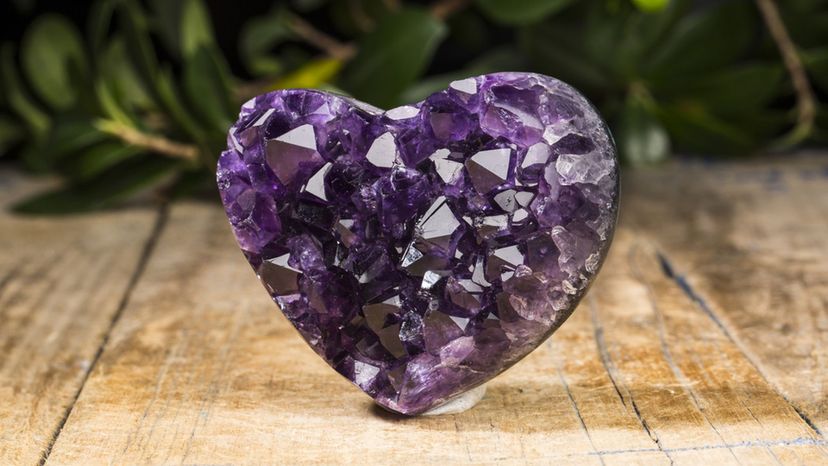
Amethyst is a semi-precious stone and a variety of quartz with a purple or violet appearance. In crystal healing, amethyst is used to calm the emotions, increase one's intuition and wisdom, aid in sobriety and clarify the wearer's thoughts.
Advertisement
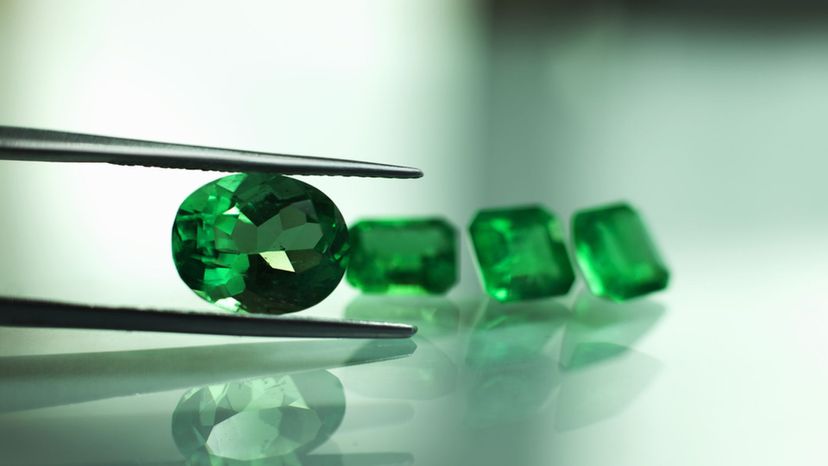
Emerald is a variety of the mineral beryl with a grass-green coloration. The birthstone for May, emerald is used in metaphysics as an activator of the heart chakra, centeredness, wisdom and to heal heartbreak.
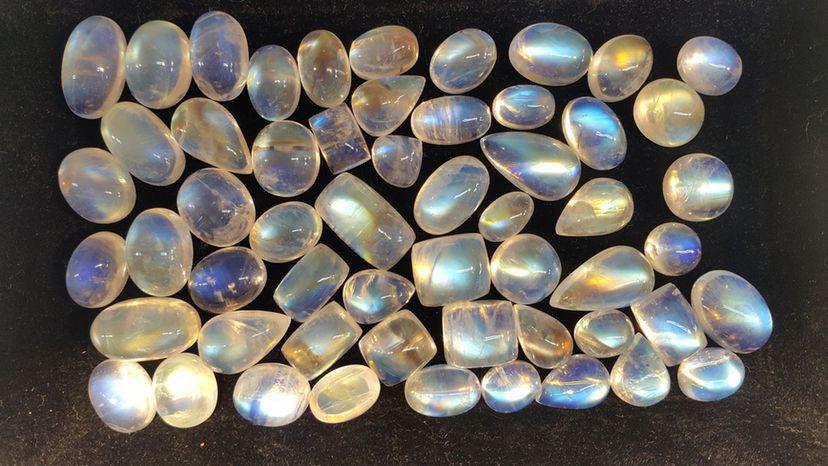
Moonstone, composed of sodium, potassium and aluminum, is a type of silicate mineral with a silvery or bluish coloration. In metaphysics, this semi-precious stone is used to encourage communication, promote clear thinking, receptivity, inspiration and psychic abilities.
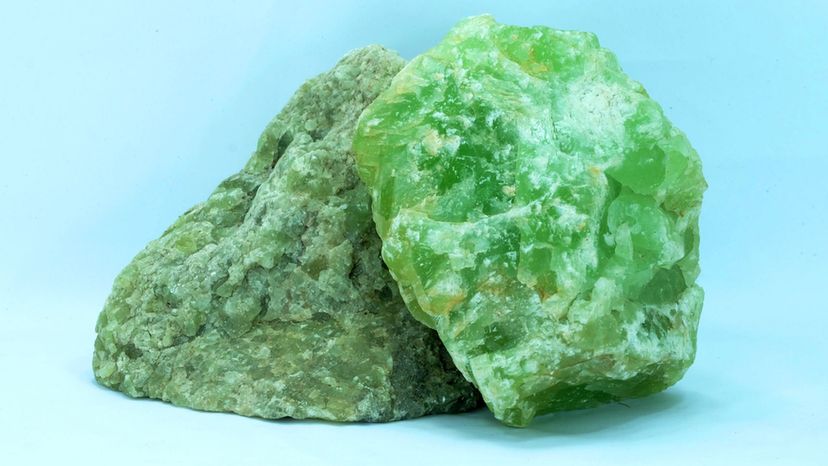
Jade, an ornamental mineral, refers to two green silicate minerals; jadeite, composed of sodium and aluminum, and nephrite, made of calcium and magnesium. Jade is associated with good luck, prosperity and the elimination of anxiety and fear.
Advertisement
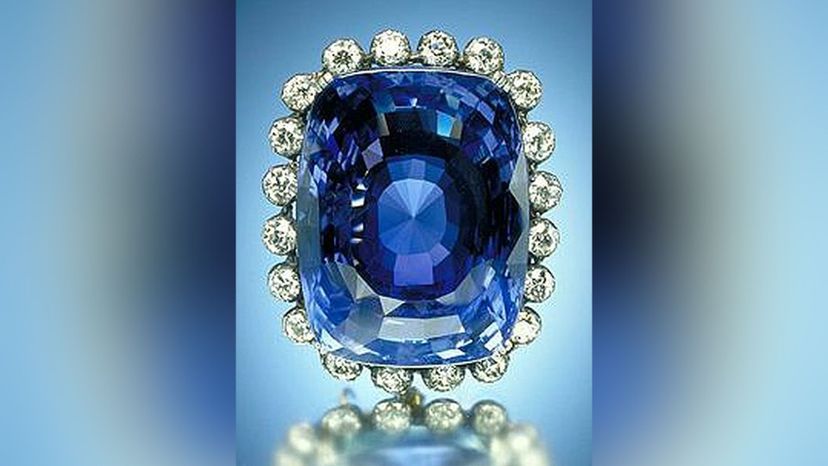
Sapphire, along with ruby, emerald, diamond and amethyst, is one of the five traditional precious gemstones. A variant of the mineral corundum, this gem typically has a deep blue coloration, though it comes in several shades including yellow, orange, pink, violet, green, or simply colorless.
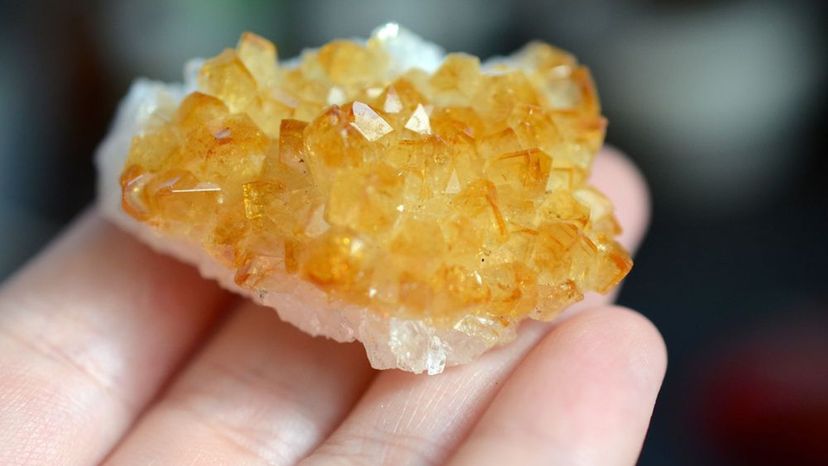
Citrine is a transparent, coarse-grained type of quartz with a color that ranges from pale yellow to brown due to ferric impurities. This semi-precious gem is the birthstone for November and the planetary stone for Virgo.
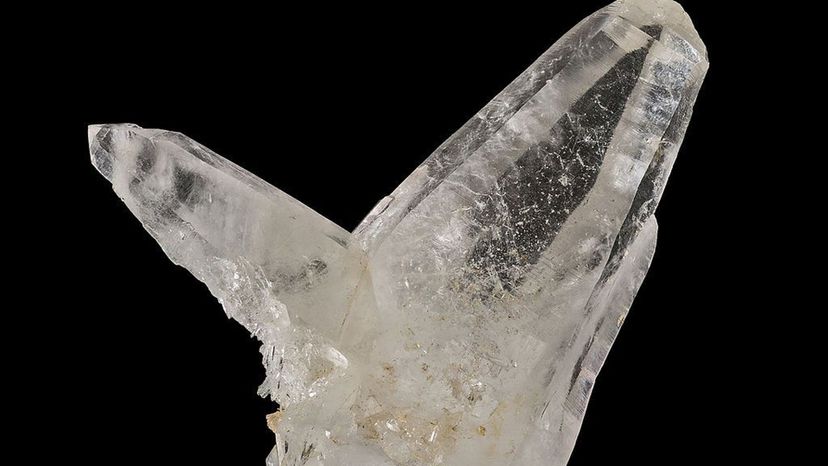
Quartz, of which there are many varieties, is a mineral composed of silicon dioxide. Types of quartz include rose quartz, smoky quartz, citrine, amethyst and chalcedony such as carnelian, jasper, agate and bloodstone.
Advertisement
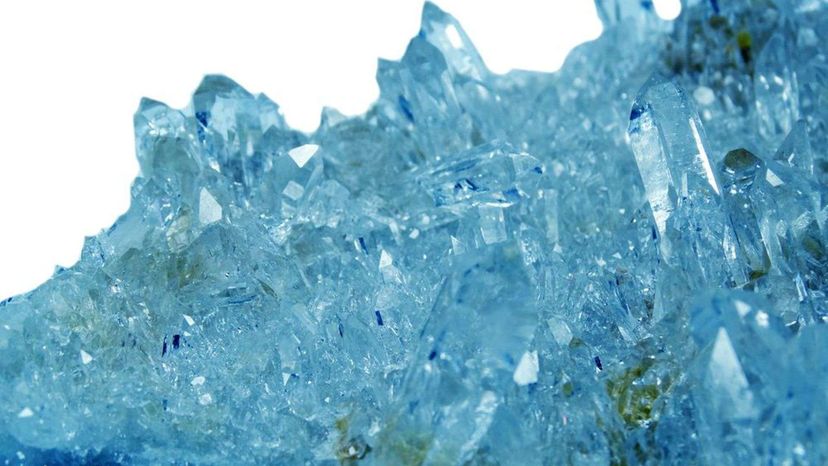
Aquamarine is a type of beryl and a cousin of emerald. Its colors vary from pale/light blue to cyan, while the dark blue version is called maxixe. Aquamarine is mined in Brazil, Colombia Madagascar, Zambia, Kenya, Tanzania and Malawi.
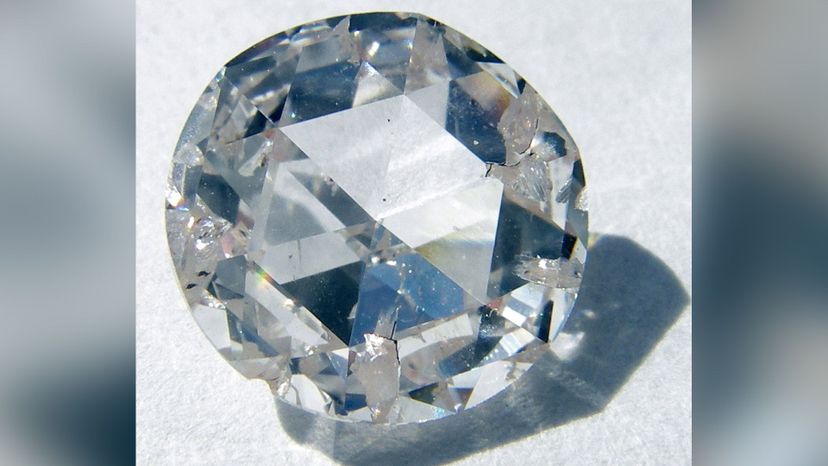
Diamond is a type of pure carbon and the hardest, naturally occurring substance. This precious stone is typically colorless but comes in other colors such as yellow, red, orange or brown. Due to its extreme rigidity, it is commonly used in a wide variety of industrial applications.
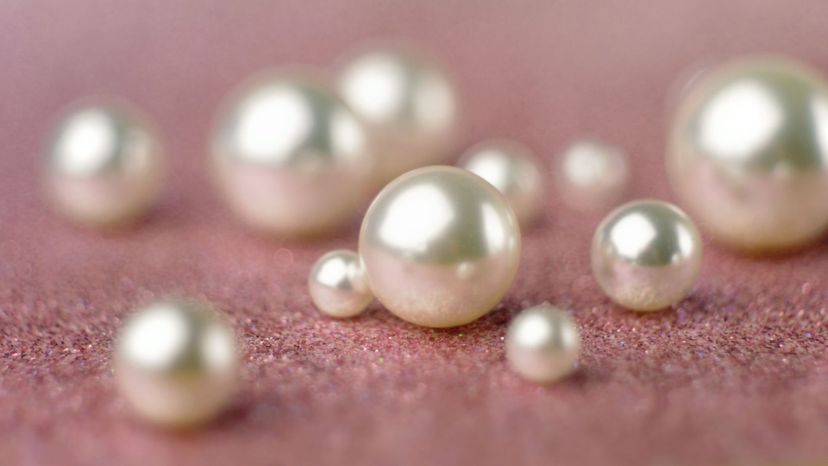
Pearl is a mineral object produced within the soft tissue of a shelled living mollusk. Just like the mollusk's shell, it is composed of calcium carbonate deposited in concentric layers. Classic pearls are perfectly round and come in many colors including white, cream, yellow and pink.
Advertisement
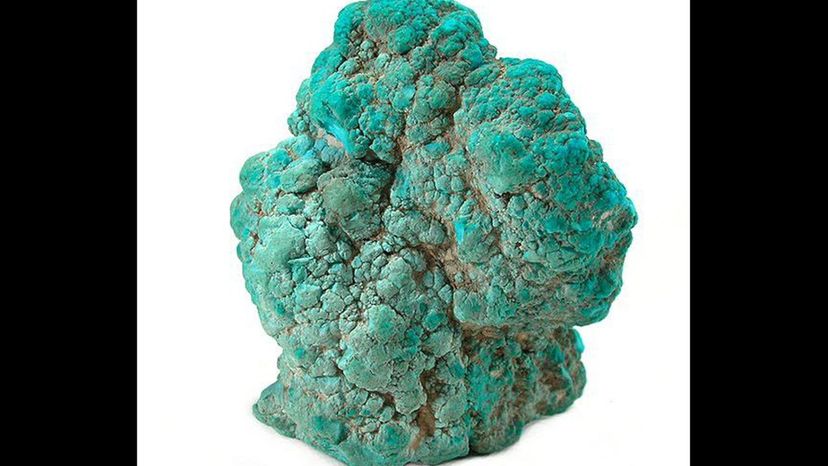
Turquoise is an opaque, greenish-blue ornamental gemstone composed of a hydrated phosphate of copper and aluminum. The healing properties of turquoise include activating the throat chakra and promoting honest and open communication from the heart.
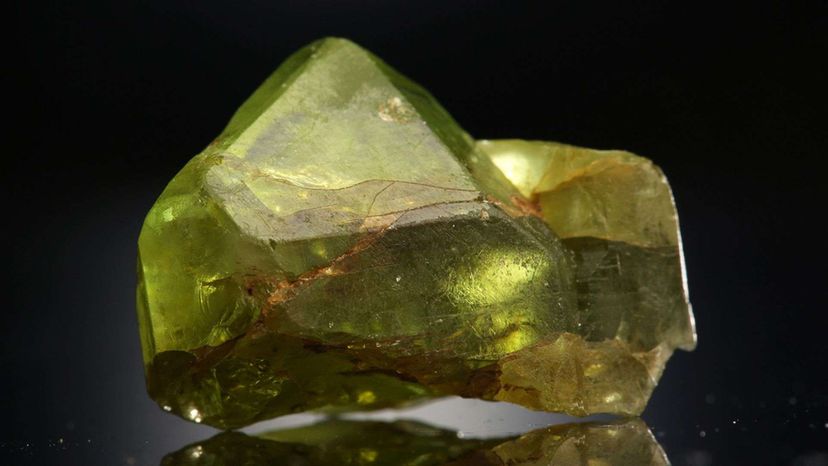
Peridot, also known as precious olivine, is a transparent, magnesium-rich, silicate mineral with an olive-green coloration. The tint and intensity of this olivine depend on the amount of iron present. Colors range from yellow, olive to brownish green and occasionally, lime-green.
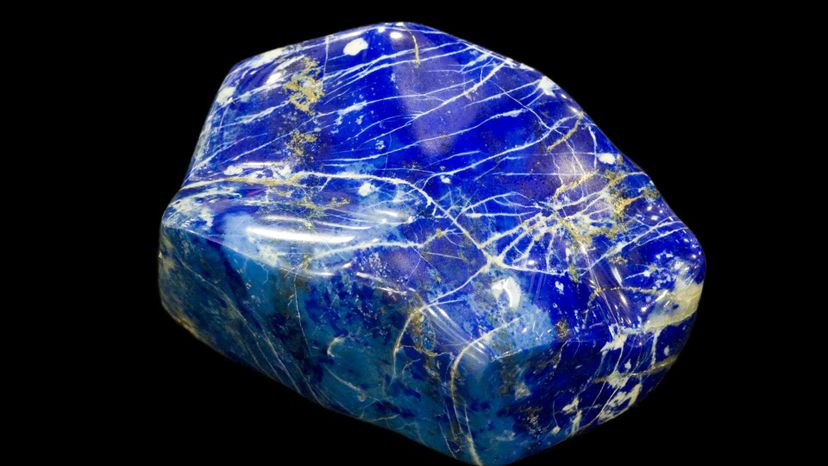
Lapis lazuli is a deep blue metamorphic rock mottled with white calcite and brassy pyrite crystals. It is associated with royal energy, inner nobility and divine nature. Lapis lazuli is used to activate intuition, psychic abilities, visionary awareness and spiritual guidance.
Advertisement
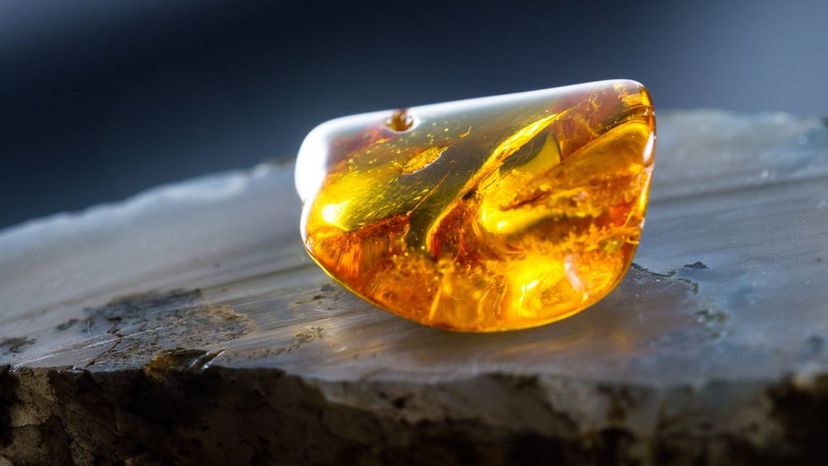
Amber is fossilized tree sap or pitch which is valued for its translucent, golden brown appearance. In metaphysics, amber is associated with the energy of the sun, warmth and wellbeing and is used to nurture or comfort someone recovering from illness.
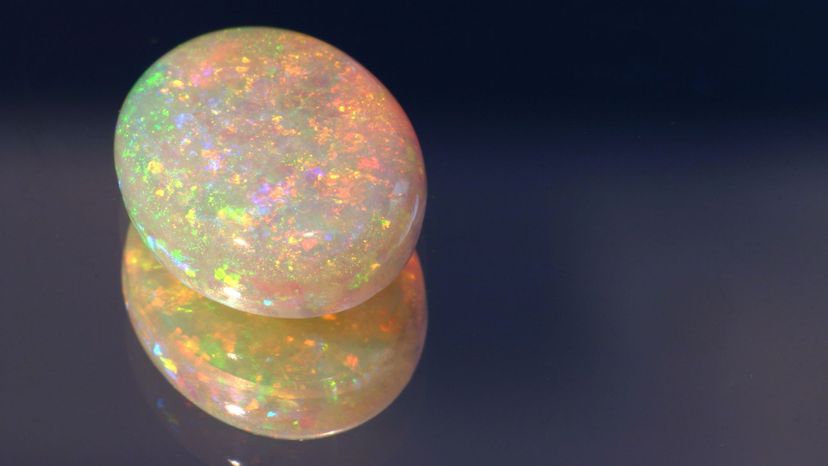
Opal, which is classified as precious or common, is a semi-transparent iridescent stone made of silicon and water. Opal may be colorless, white, yellow, orange, red, green, blue, pink, brown and black. It is used to clear one's thoughts, negative patterns and emotions.
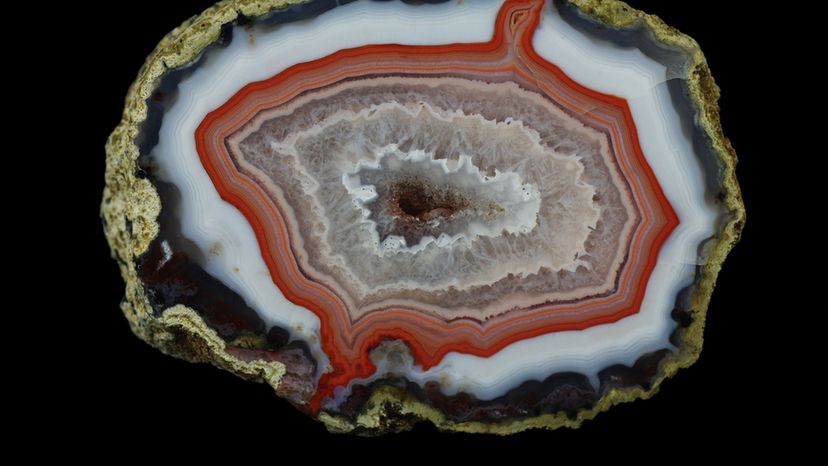
Agate, which comes in several colors, is the collective name used for a variety of banded chalcedony (a subset of quartz). In crystal healing, agate is used to connect with physical power, improve strengths and diminish weaknesses.
Advertisement
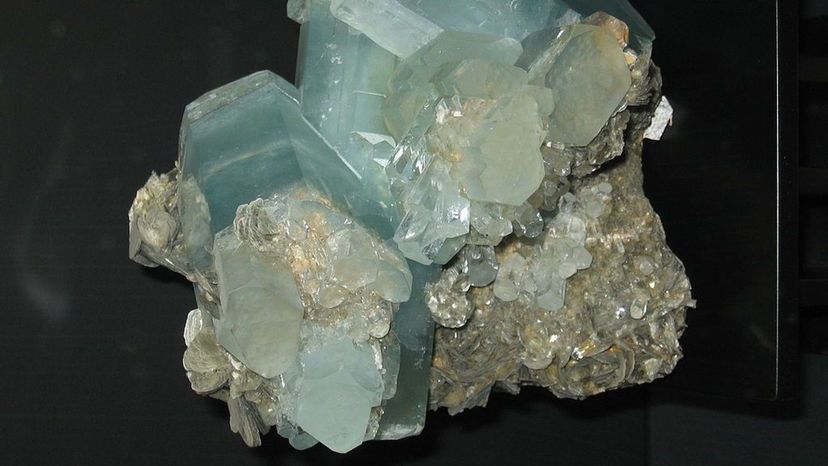
Beryl, which comes in many colors, is a mineral composed of beryllium aluminum cyclosilicate. Pure beryl is clear but due to impurities may appear blue (aquamarine), green (emerald), pink (morganite), yellow (golden beryl and heliodor), red (red beryl) and white.
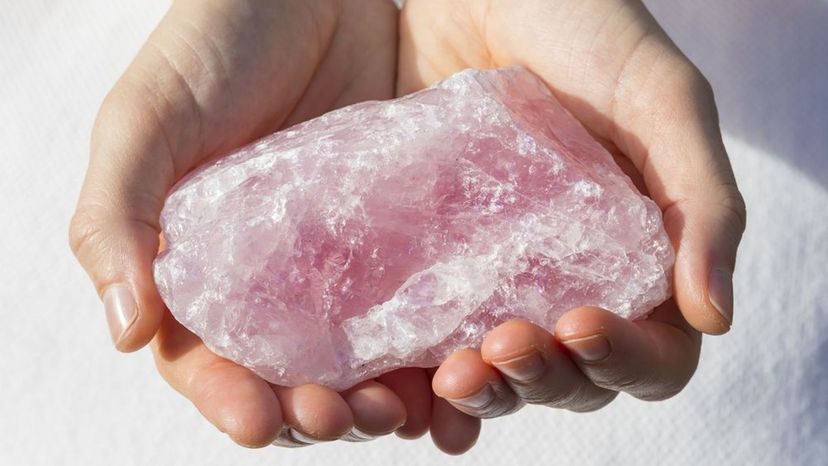
Rose quartz is the pink, coarse-grained variety of quartz whose appearance ranges from opaque to transparent and from pale pink to deep, reddish pink. The classic stone of love, rose quartz is used to dissolve old hurts, mistrust, suspicion and open the heart to trust in love.
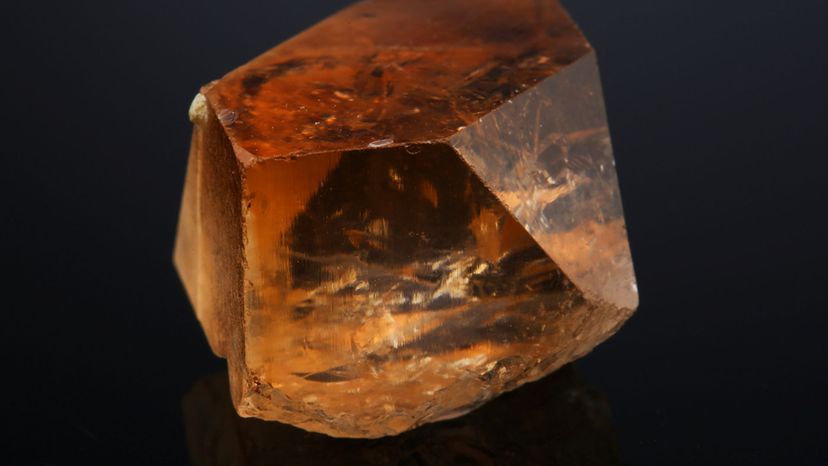
Topaz, made of aluminum and fluorine, is a hard silicate mineral which measures an eight on the Mohs scale of hardness. It is a semi-precious stone and comes in many shades including yellow, gold, orange, red, peach, pink, blue, brown, green, white and clear.
Advertisement
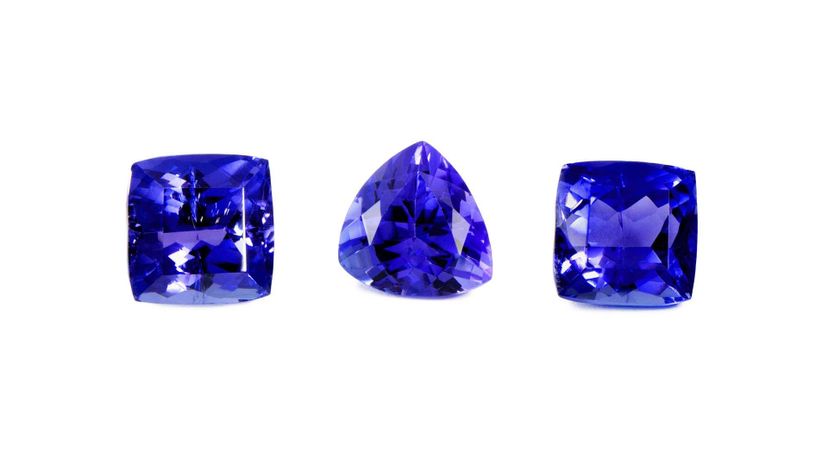
Tanzanite, also known as blue zoisite, is the blue or blue-violet variation of the mineral zoisite. Tanzanite is only found in Tanzania, which it was named after. In crystal healing, it is used to harmonize and link the heart and third-eye chakra and awaken enlightened consciousness.
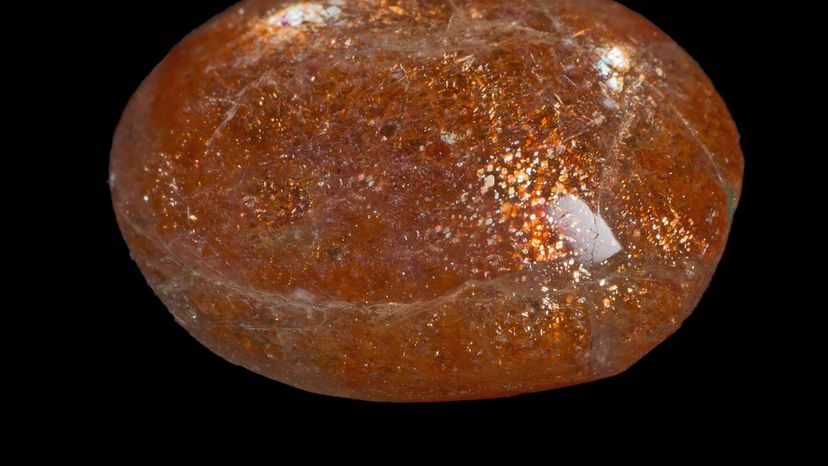
Sunstone is a type of feldspar, which, when viewed from certain angles, exhibits a spangled or glowing appearance. This effect is due to light being reflected off red copper present in the crystal. Sunstone may be colorless, yellow, red, green, blue or copper color.
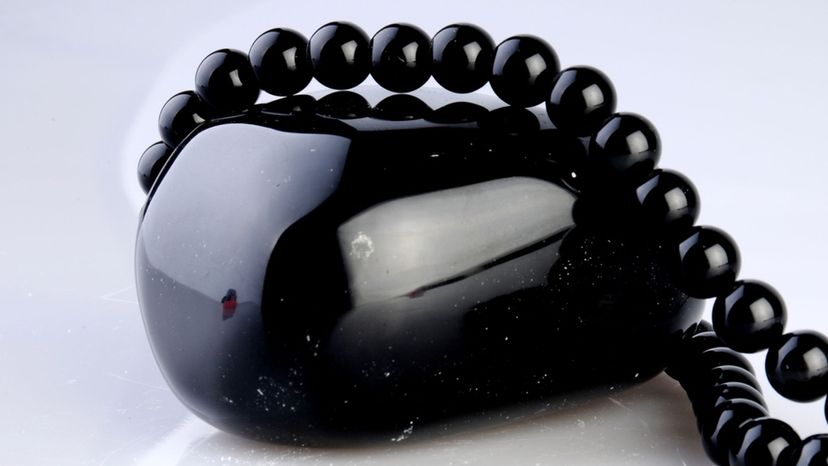
Obsidian is a naturally occurring volcanic glass formed when lava erupts from a volcano, but only under certain conditions; there needs to be a large amount of silica present, and the lava must cool rapidly with minimal crystal growth.
Advertisement
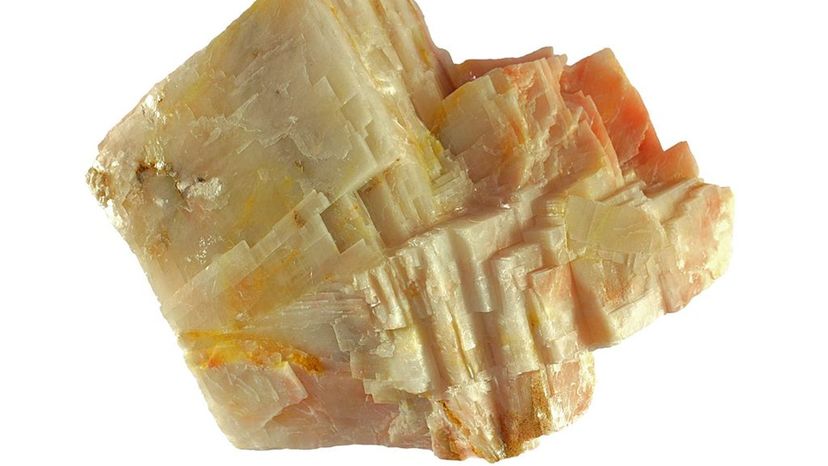
Calcite, which ranges from transparent to opaque, is a soft stone composed of calcium carbonate and may be colorless, white, yellow, orange, red, green, blue, violet or gray. Orange calcite is associated with the 2nd and 3rd chakras, blue the throat, red the root, green and pink the heart.
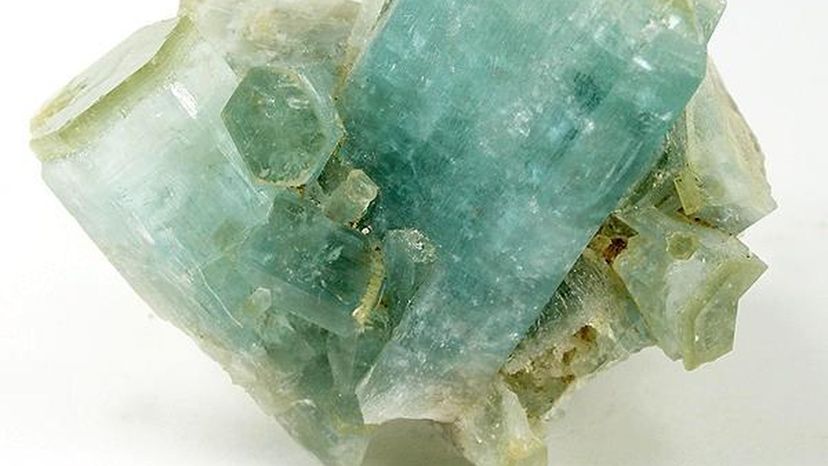
Heliodor is a member of the beryl family which can be found in many colors, typically greenish-yellow, but also yellow, yellow-green, light green and brown. Heliodor may be worn to increase physical and mental strength, assertiveness, self-confidence, power and benevolence.
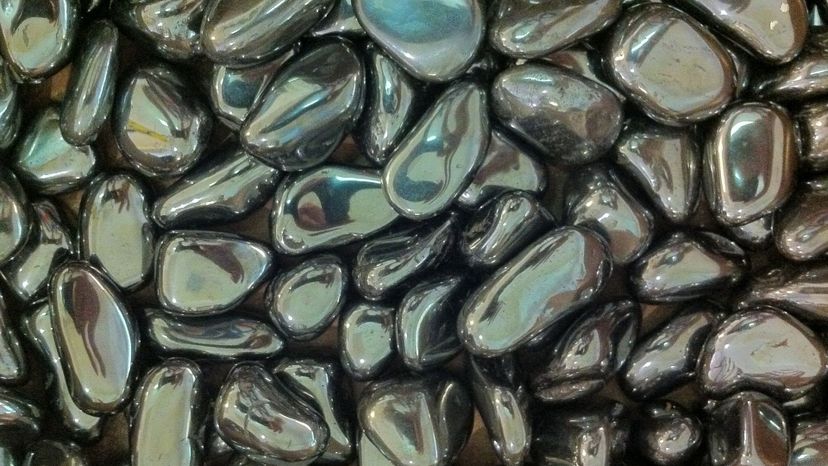
Onyx is a type of banded quartz which comes in a variety of colors but is sometimes dyed black. In metaphysical healing, onyx is used to focus and direct your energy toward your goals and to replenish your vitality following an illness or fatigue.
Advertisement
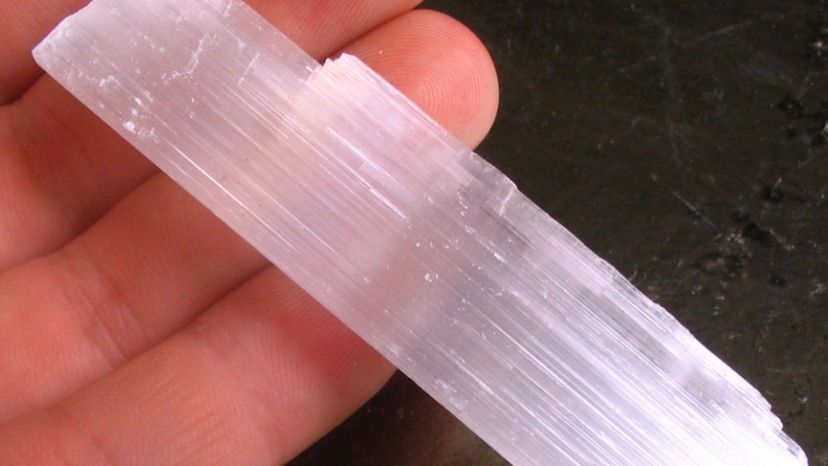
Selenite, along with satin spar, desert rose, and gypsum flower is one of the four varieties of the mineral gypsum. Like all variations of gypsum, it is composed of calcium sulfate dihydrate and may be brown, green, brownish-yellow, greenish gray-green and gray-white.
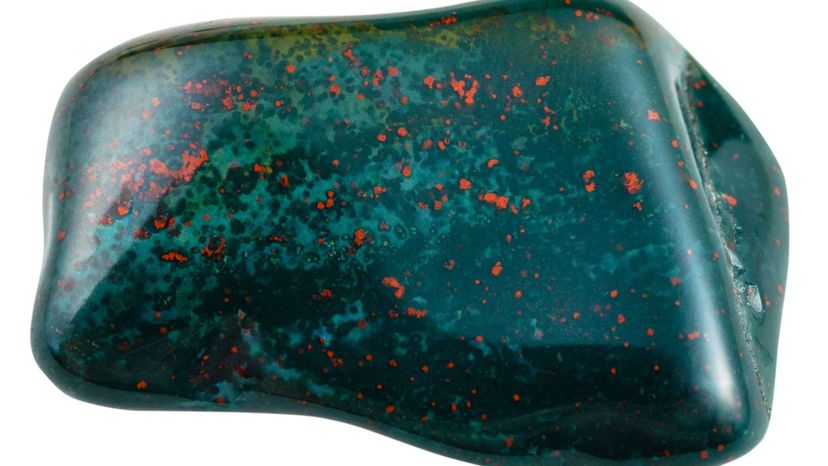
Bloodstone, also known as heliotrope, is a type of jasper with red inclusions of hematite which resembles blood spots, hence its name. Bloodstone is used to face hard realities and challenges by strengthening the root chakra and cleansing the aura.
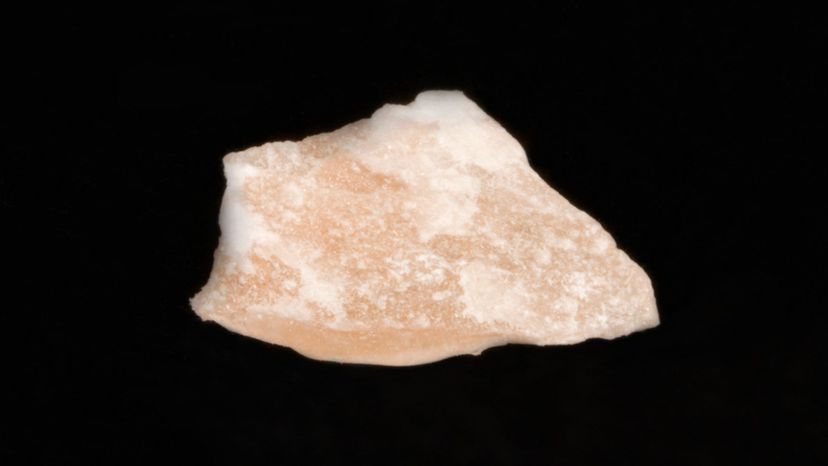
Gypsum, which is made of calcium sulfate dihydrate, is a soft sulfate mineral commonly used as a fertilizer and in blackboard chalk, plaster and wallpaper. It was also used for sculptures by many civilizations including Ancient Egypt, Ancient Rome and Mesopotamia.
Advertisement
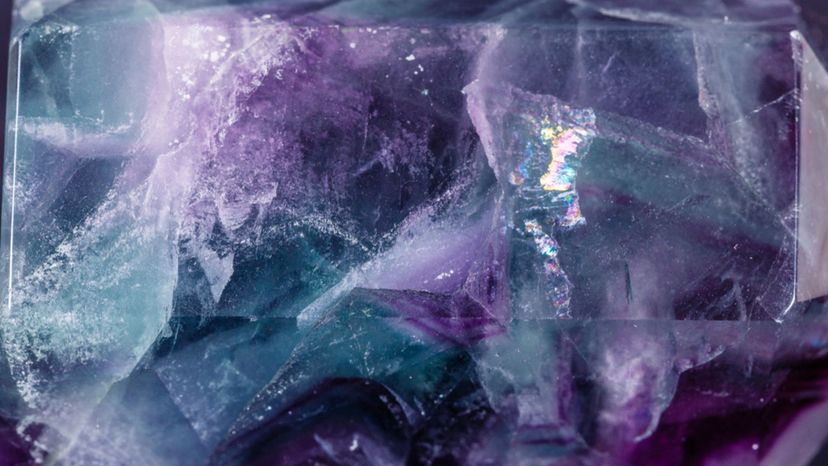
Fluorite, also known as fluorospar, is the mineral form of calcium fluoride. Pure fluorite is white or colorless, but due to traces of other minerals, may be purplish-blue, blue, green, red and yellow. This transparent mineral is very soft and sits at a four on the Mohs Scale.
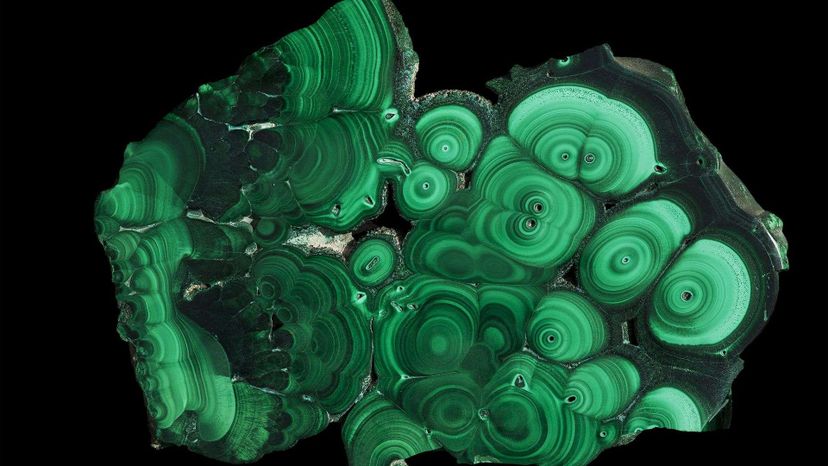
Malachite is an opaque, green-banded mineral composed of copper carbonate hydroxide. It is easily recognized by its distinctive bright green color decorated with dark green bands. Malachite is found in Congo, Canada, Namibia, Russia, Mexico, Australia and England.
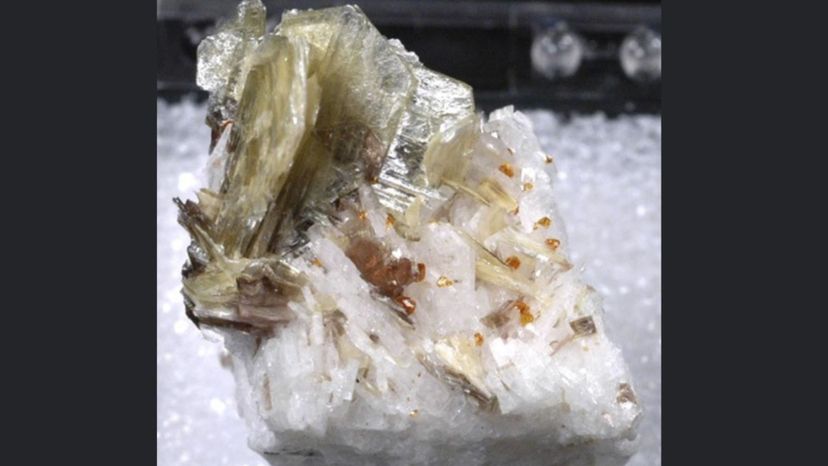
Microlite is the collective name for a group of minerals with a pale-yellow, orange, reddish-brown or black coloration. This mineral is composed of sodium-calcium tantalum oxide with a small amount of fluorine.
Advertisement
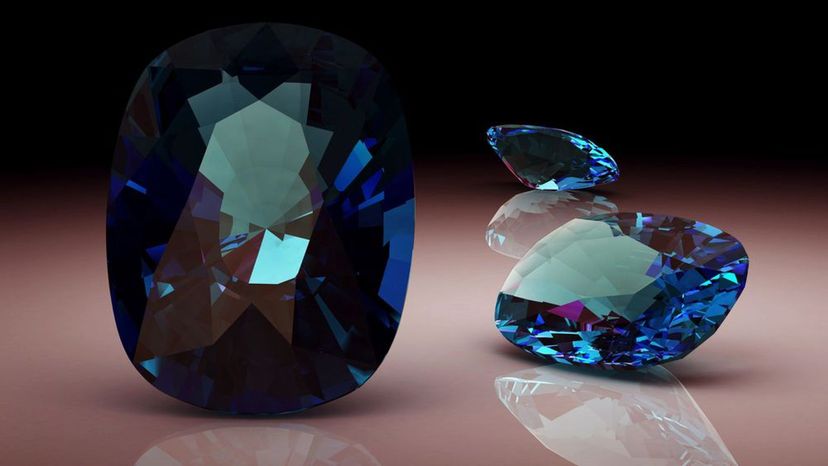
Alexandrite is a member of the chrysoberyl family of stone (unrelated to the beryl family). When exposed to daylight, it appears bluish-green, but, under incandescent lighting, appears purplish-red. It also looks a different color when viewed from certain angles.
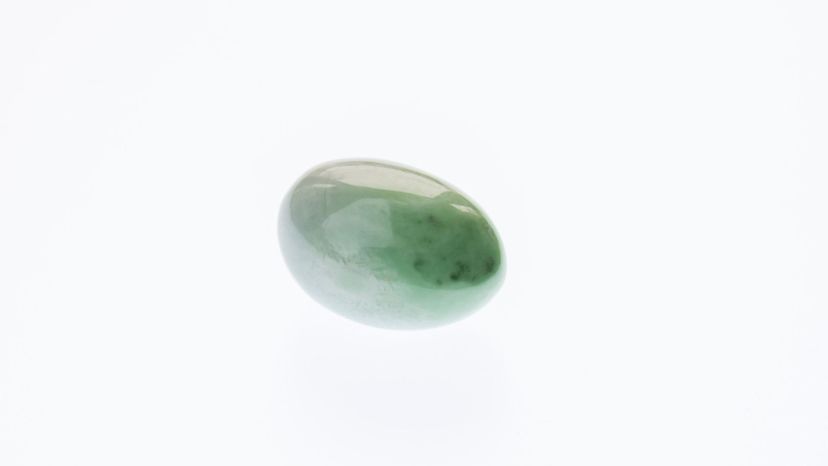
Tremolite is a rare member of the amphibole group of silicate minerals which ranges from pure white, gray, lavender, pink, light green and light yellow. It was named by Johann Georg Albrecht Höpfner in 1789 after the Tremola Valley (Val Tremola), Switzerland.
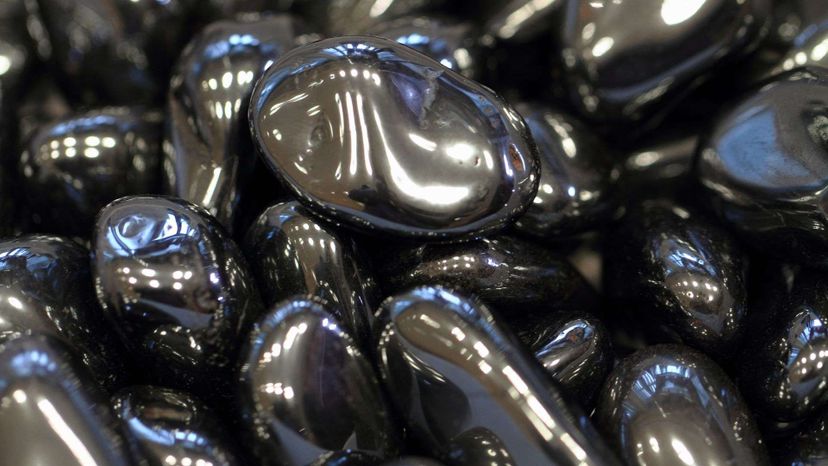
Hematite is the oldest known iron oxide mineral formed on Earth and is commonly found in rocks and soils. Hematite comes in many shades such as black, steel, silver-gray, brown, reddish brown or red. This stone is used to help clear confusion and to keep one grounded in reality.
Advertisement
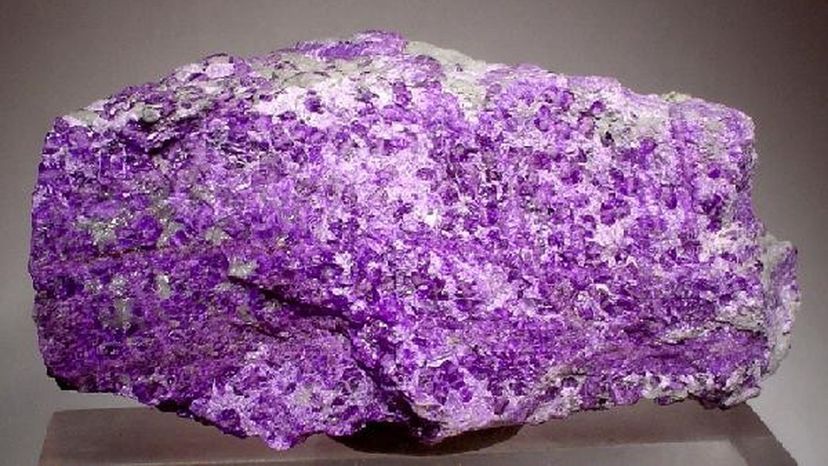
Sugilite, also called royal Azel, lavulite, Cymbeline and wesselite, is a relatively rare cyclosilicate mineral with a pink to purple coloration. Sugilite is found in Japan, Northern Cape province of South Africa, Mont Saint-Hilaire, Quebec, Canada and New South Wales, Australia.
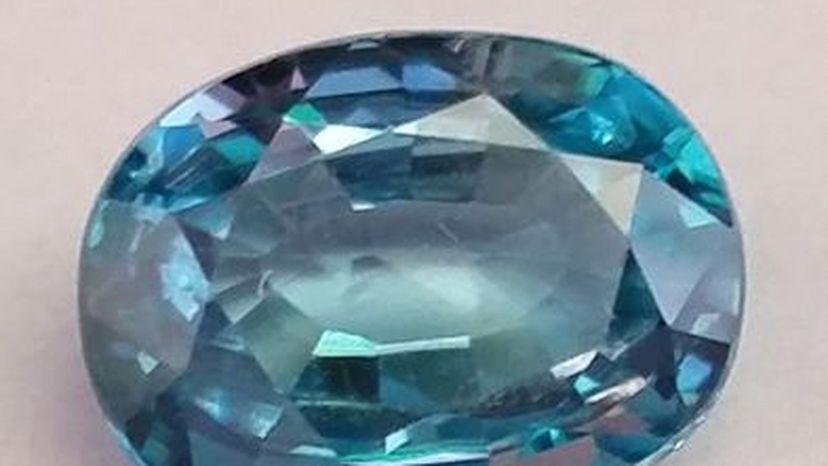
Zircon is a silicate mineral which may be naturally brownish yellow or red but turns blue, red, yellow or clear when heated. In crystal healing, zircon is an energy stimulating stone which is used to activate any chakra, amplify other stones and for psychic protection.
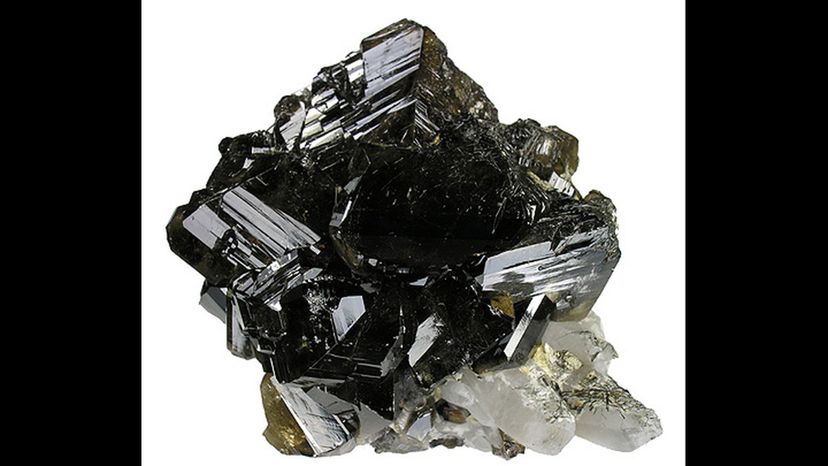
Tourmaline is a common crystalline boron silicate mineral which is available in many colors such as pink, red, yellow, blue, green and black. This semi-precious stone is also compounded with other elements such as iron, aluminum, magnesium, potassium, sodium or lithium.
Advertisement
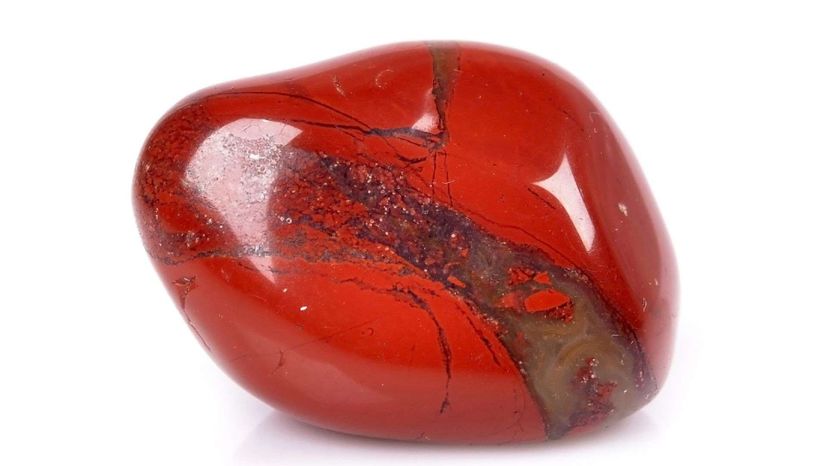
Jasper is an opaque, fine-grained and dense variety of the quartz family. There are over 50 variations of jasper, each with a different color and pattern. It is found in many colors including red, yellow, orange, brown, green, white, black and rarely, blue.